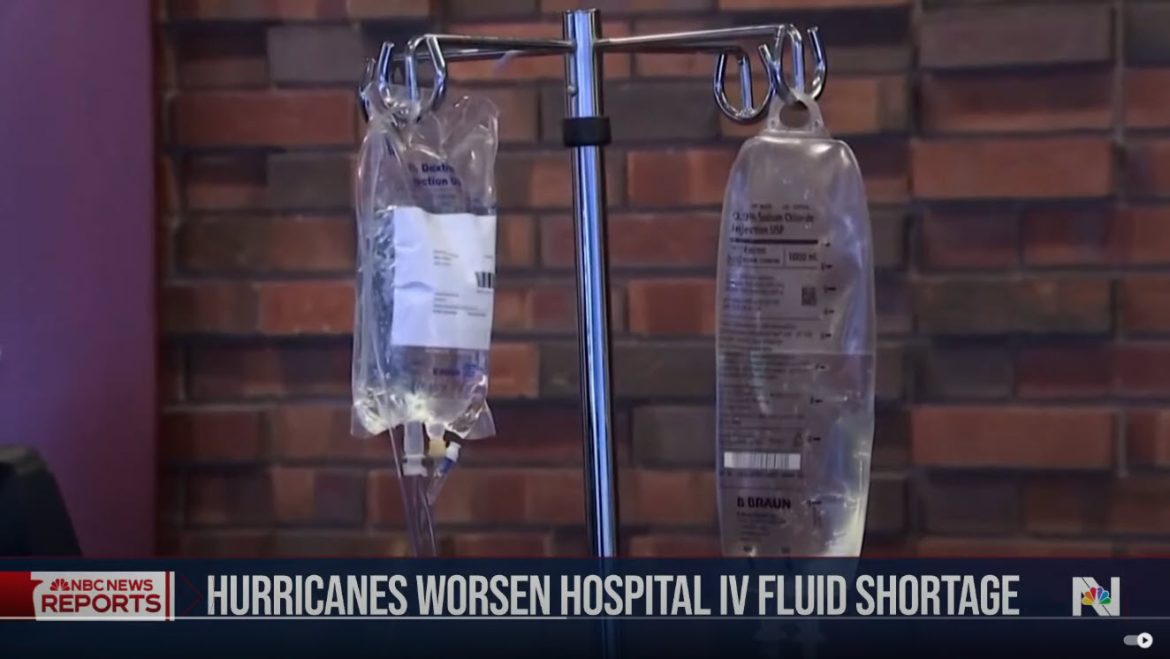The recent surge of powerful hurricanes sweeping across the southeastern United States has ignited a nationwide crisis in the healthcare supply chain, specifically affecting the availability of intravenous (IV) fluids. Hospitals and medical centers are grappling with a growing shortage, as two major manufacturing plants critical to the production and distribution of IV fluids have been severely impacted by storm damage.
The situation escalated after Hurricane Milton forced the closure of a major production facility in Daytona Beach, Florida, responsible for distributing a quarter of the nation’s IV fluids. The situation worsened when Hurricane Helene swept through North Carolina, damaging another key factory near Asheville that produces a significant portion of the country’s remaining IV fluid supply.
Mary Mayhew, President and CEO of the Florida Hospital Association, expressed concern over the rapidly depleting stockpile of IV fluids in medical centers across the country. “Hospitals are preserving every drop of IV fluid they have, and while we are not at crisis levels yet, the situation is extremely concerning,” Mayhew said. Hospitals have begun rationing fluids in an effort to extend the available supply for as long as possible, prioritizing critical care patients while delaying non-urgent procedures that require IV solutions.
Despite these measures, medical professionals are warning that the situation could worsen without federal intervention. Mayhew is calling on the U.S. government to officially declare a nationwide shortage, which would enable more flexibility in addressing the shortfall. Such a declaration could also facilitate coordinated efforts to source alternative supplies and allow hospitals to streamline resource-sharing.
“We need the government to make an official declaration of a shortage,” Mayhew stated, emphasizing the need for action. “It would greatly help if President Biden would issue a public health emergency, allowing us to mobilize resources and alleviate the strain on healthcare facilities.”
As of now, healthcare providers are anxiously monitoring supply levels, hoping that relief can come before the shortage reaches critical proportions. The hurricanes, which have caused widespread disruption to transportation and logistics networks in addition to manufacturing, have made it increasingly difficult to import IV fluids from international suppliers. The combination of storm damage, shipping delays, and increased demand due to ongoing medical needs has created a perfect storm for what could become a serious healthcare crisis if left unchecked.
Efforts are underway to secure emergency shipments of IV fluids from overseas, but logistical challenges continue to impede progress. In the meantime, hospitals are urging patients and the general public to be patient as they navigate this unprecedented supply chain disruption.



